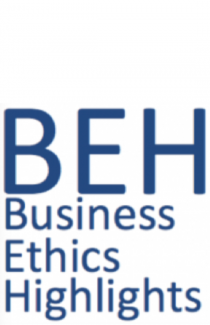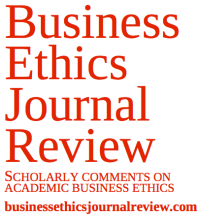 Controversy surrounds Mast Brothers, an artisanal, “bean-to-bar” chocolate maker in Brooklyn. Although Mast Brothers is today (and has been since 2009) a bean-to-bar chocolate maker, it didn’t exactly start that way: in its first two years, most or all Mast Brothers chocolate was made from melted Valrhona chocolate, even as Mast Brothers cultivated a bean-to-bar image. In other words, at least for its first two years in business, Mast Brothers may have misrepresented itself as a bean-to-bar chocolate maker. This presents an interesting ethical question: Did Mast Brothers act wrongfully in cultivating an origin story that may be at odds with its actual origins? Anglo-American commercial law draws a distinction between material misrepresentations (which are legally wrongful and grounds for a disappointed purchaser to recover) and immaterial misrepresentations (which are legally innocuous and not grounds for recovery). Very roughly, material misrepresentations are misrepresentations about the product, its features, or its attributes; immaterial misrepresentations are misrepresentations about things surrounding the product (for example, beliefs and attitudes about the product: “kids just love it!”). To the extent that settled law is a rough but reliable guide to widely-held moral intuitions, an interesting question is whether Mast Brothers’ origin story, if it is a misrepresentation, is material or immaterial. This piece could be used in the classroom to pursue what sorts of disclosures sellers owe (and don’t owe) to buyers and the relationship between legal standards and ethical norms. >>>
Controversy surrounds Mast Brothers, an artisanal, “bean-to-bar” chocolate maker in Brooklyn. Although Mast Brothers is today (and has been since 2009) a bean-to-bar chocolate maker, it didn’t exactly start that way: in its first two years, most or all Mast Brothers chocolate was made from melted Valrhona chocolate, even as Mast Brothers cultivated a bean-to-bar image. In other words, at least for its first two years in business, Mast Brothers may have misrepresented itself as a bean-to-bar chocolate maker. This presents an interesting ethical question: Did Mast Brothers act wrongfully in cultivating an origin story that may be at odds with its actual origins? Anglo-American commercial law draws a distinction between material misrepresentations (which are legally wrongful and grounds for a disappointed purchaser to recover) and immaterial misrepresentations (which are legally innocuous and not grounds for recovery). Very roughly, material misrepresentations are misrepresentations about the product, its features, or its attributes; immaterial misrepresentations are misrepresentations about things surrounding the product (for example, beliefs and attitudes about the product: “kids just love it!”). To the extent that settled law is a rough but reliable guide to widely-held moral intuitions, an interesting question is whether Mast Brothers’ origin story, if it is a misrepresentation, is material or immaterial. This piece could be used in the classroom to pursue what sorts of disclosures sellers owe (and don’t owe) to buyers and the relationship between legal standards and ethical norms. >>>
LINK: The scandal over Brooklyn’s small-batch artisanal chocolate factory, explained (by Libby Nelson for Vox)
The revelations are unlikely to have much effect on the Mast Brothers’ business today. Since 2009, they really have made most of their chocolate from scratch.
But the story is resonating because the Brooklyn chocolate company has become the quintessential stereotype of the artisanal food movement. Even before the Mast Brothers were accused of selling repackaged European chocolate, chocolate experts were arguing that they were all hype and no substance.
The argument over Mast Brothers’ chocolate isn’t just about the origin of their chocolate — it’s about their origin story itself. More broadly, it’s about whether it matters if the stories you’re buying along with your overpriced artisanal food are really true, and how much that matters.
What do you think?




This controversy does indeed present a lot of interesting legal and ethical questions related to product marketing and branding. On the legal side, for example, in 2008, when Mast Brothers said it was a “bean-to-bean chocolate maker”, was there a legal standard that established the criteria by which a company could make that claim? Is there one today? If not, is there an ethical one? How are those standards communicated to industry participants and consumers?
The chocolate bars the Mast Brothers sold were not labeled as as “bean-to-bar” chocolate, but rather as “Handmade in Brooklyn”. In light of their claim to be a “bean-to-bar chocolate maker”, did they have a legal or ethical obligation to label the bars in a manner that clearly distinguished their “bean-to-bar” chocolate bars from any bars that were not made using that process?
Much of the “origin story” of the early Mast Brothers brand was built through favorable press coverage that often highlighted the “bean-to-bar” aspect of the company’s business. Yet the Masts claim (and the “direct evidence” offered in the blogger’s story reveals) that they discussed their couverture work with customers, chefs, competitors and the press, including with major national newspapers such as the LA Times. Yet the information was never reported to the public at large. What legal or ethical obligations did the Mast Brothers have to correct press coverage that failed to mention their work with couverture?
One thing that should be clear from the scandal is that the words a business uses to describe itself and its products matters greatly, so businesses should choose those words carefully. This is true whether the business is a multinational conglomerate or a small family business run out of a home or apartment, as Mast Brothers was when the actions at the heart of the controversy occurred.
Finally, it’s noteworthy that even a forum focused on business ethics will present as fact information that is actually simply an allegation, such as “in its first two years, most or all Mast Brothers chocolate was made from melted Valrhona chocolate”.